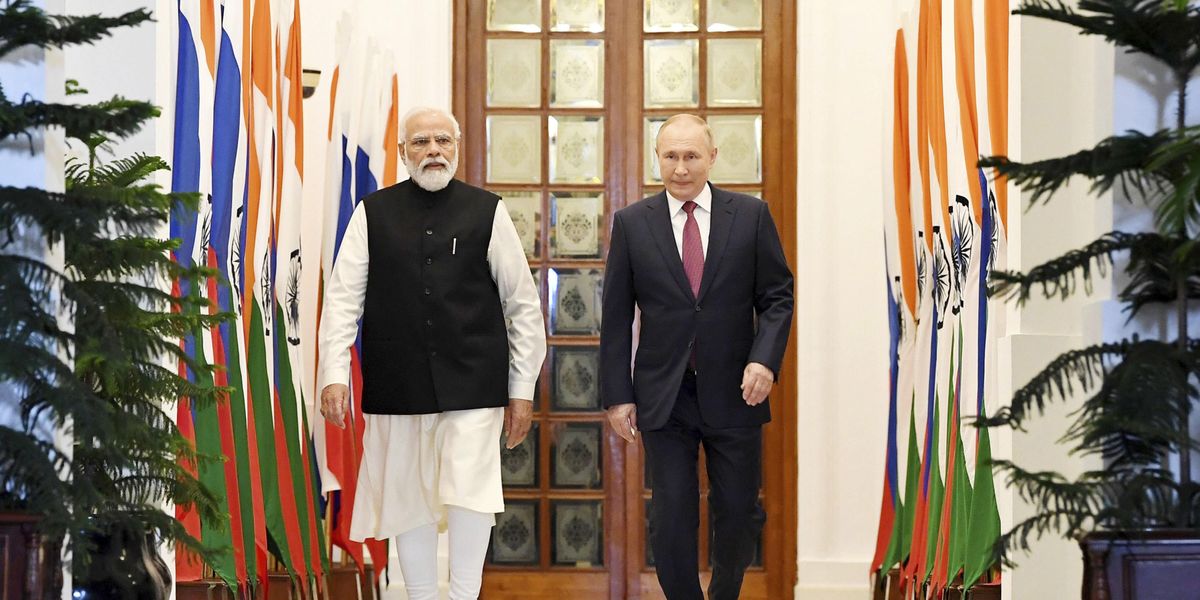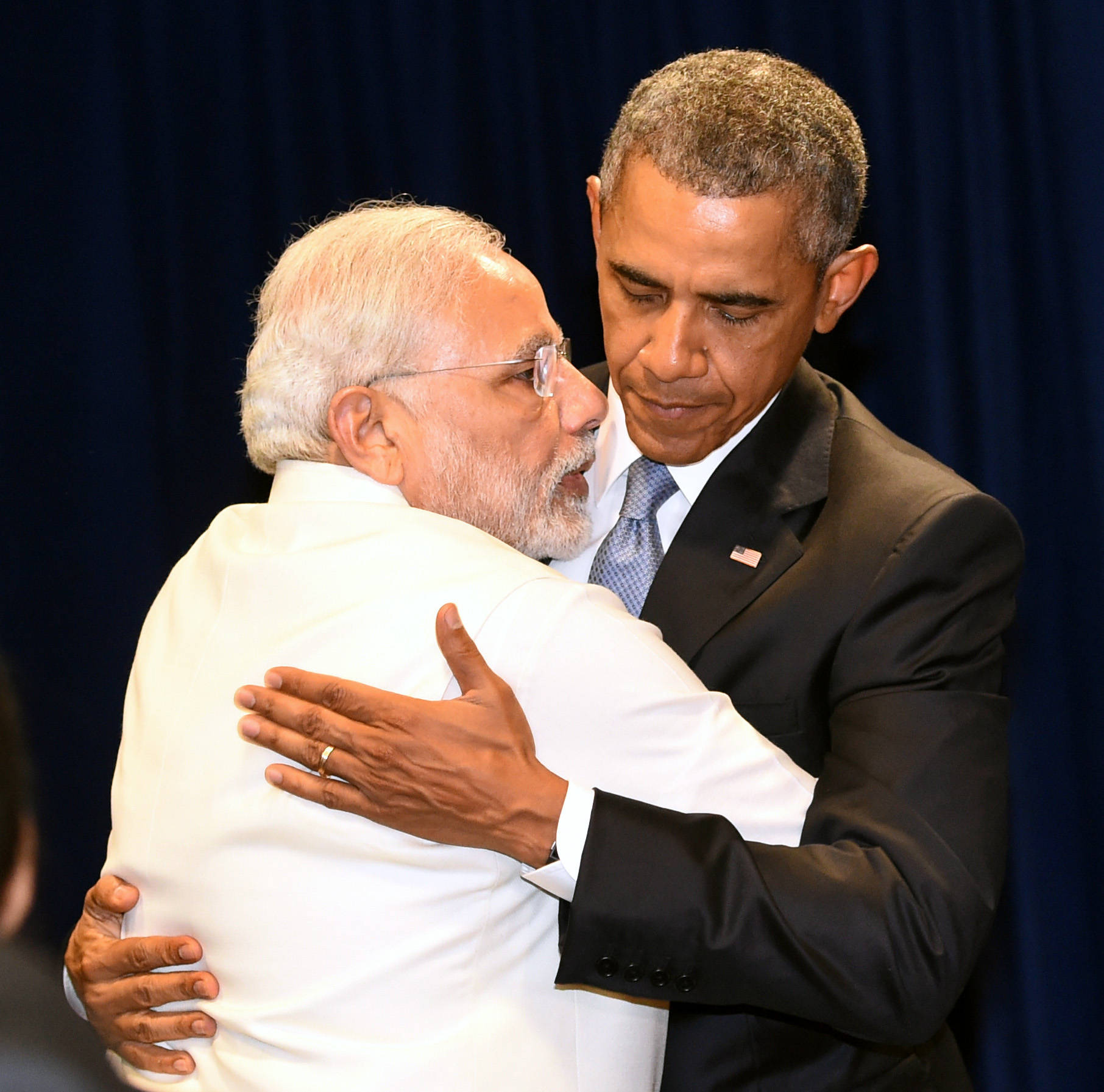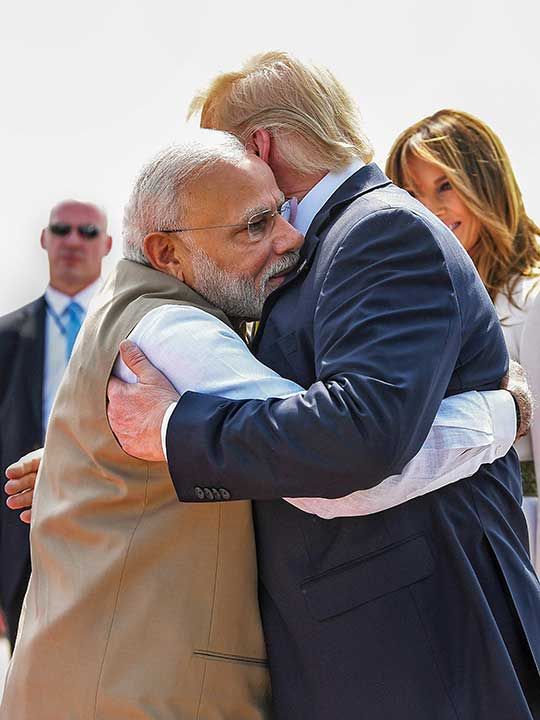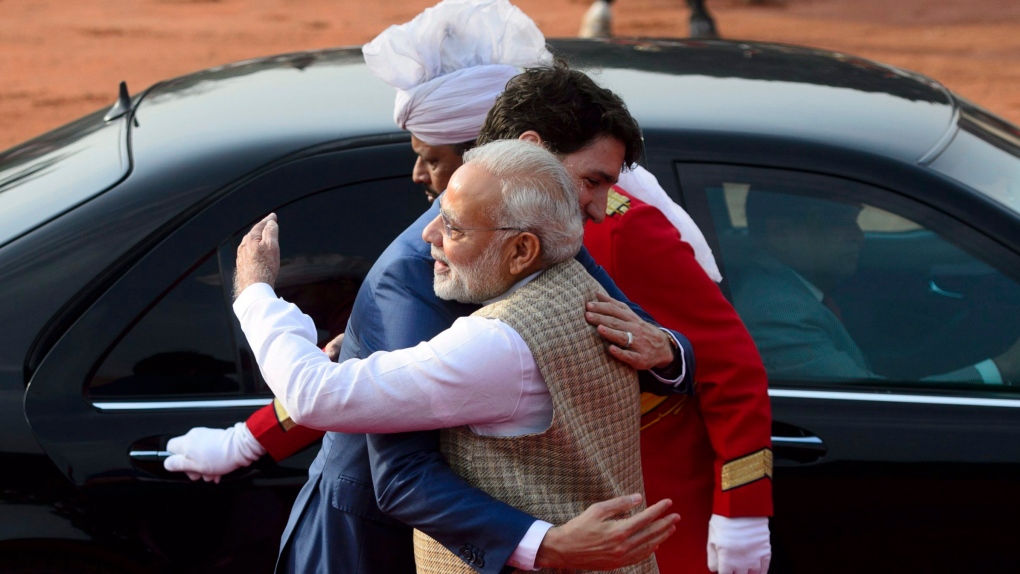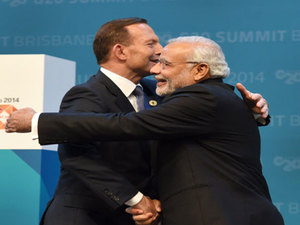The Price Of India's UN Vote On Ukraine Will Be Paid In Washington
The Modi government chose to abstain on the UN Security Council condemnation of the Russian invasion, but it underestimates how much India will be condemned on the wrong side of history in the minds of American leaders for years to come.
March 01, 2022
Sushil Aaron
NEW DELHI — President Barack Obama once described India-US ties as one of the defining partnerships of the 21st century. That relationship unexpectedly got into choppy waters last week after India got a couple of reminders from the United States on its position about Russia’s invasion of Ukraine and how it should vote on the draft UN Security Council resolution – which India ultimately abstained on, along with China and the UAE.
U.S. Secretary of State Antony Blinken tweeted that he had spoken to external affairs minister S. Jaishankar – and indicated the “importance of a strong collective response to Russian aggression.” Blinken effectively drafted lines that the Ministry of External Affairs was struggling to compose suggesting that “Russia’s attack on Ukraine’s sovereignty and territorial integrity is a clear violation of the rules-based international order."
President Joe Biden mentioned in a press conference that the issue of being fully in sync with India on the issue wasn’t resolved completely. Then US Ambassador to the UN Linda Thomas-Greenfield said this while introducing the resolution: “vote yes if you believe in upholding the UN Charter … Vote no or abstain if you do not uphold the Charter.”
India has drawn closer to the West in recent decades, but has its own compulsions when it comes to Russia. Thousands of Indian students are stranded in Ukraine who need Russian help to get out, Russia is India’s biggest weapon supplier and Moscow provides cover for the country at the UN should Pakistan or China raise Kashmir there.
Modi expectations
There are other reasons driving India’s policy. One is the belief that there is no real price to pay for sitting on the fence on Russia – the West, after all, needs India in many respects. Global corporations want to sell products and services in India, it is a big market for weapons manufacturers and India ticks a lot of boxes for the Pentagon looking for international partners to contain China. The Narendra Modi government expects elites in Washington to understand Delhi’s calculus and the tradeoffs it is confronted with.
There’s also the hypocrisy argument; analysts argue that the US has not been the paragon of consistency in implementing democratic values abroad – as it has backed coups and invaded countries like Iraq. Jaishankar himself made this case whilst answering a question at the Munich Security Conference. When asked why India was abstaining on Ukraine when it was so outspoken on Chinese incursions in India, he first said both situations are not the same – and pointed out that the European powers had not taken sharp positions on the Indo-Pacific after 2009 and at another point said that if Europe was serious about practicing principles they would have practiced those in Asia and Afghanistan.
This conflict is different.
Analytically, all this makes sense. Everyone, Blinken included, understands that states look out for their own interests and usually it’s soon business as usual for diplomats. Except that this conflict is different; the juncture in world politics is different, as are American motivations and anxieties. The decision to abstain is a misjudgment of context, even as it makes sense as a matter of interest.
The Indian government has perhaps not appreciated that the U.S., particularly the Democrats and the Biden administration, don’t see Russia merely as an adversary pursuing narrowly-defined security interests in Europe but as a power keen on undermining Western democracies – and it is this perception that will not take kindly to India’s fence-sitting.
Accusations of hypocrisy
Russia has loomed large in the American political imagination since the election of Donald Trump in 2016, following allegations of interference through disinformation campaigns and email hacking of the Democratic National Committee. The Robert Mueller report did not establish a conspiracy between Moscow and the Trump campaign but said that the Putin regime worked to secure a Trump victory – and stated in its opening that “the Russian government interfered in the 2016 presidential election in sweeping and systematic fashion”. Fiona Hill, the Russia scholar, has written that the idea that Moscow determined the election “is overstated;” she underlined that Putin merely exploited the US’s deep polarisation.
That said, the events of January 6, the role that disinformation played in fomenting it, the ongoing Republican measures to suppress the African-American vote and the chaos that may follow the 2024 election if Trump were to claim victory again – all these make Democrats and the Biden administration particularly wary of what Putin will attempt in 2024.
US analysts are dreading what the interregnum between the 2024 Election Day and Inauguration Day 2025 would bring, and wonder what the next Jan. 6 insurrection would look like.
In a recent conversation with historian Timothy Snyder, David Remnick, the editor of the The New Yorker, spoke of the possibility that Putin would like to see the U.S. experience its own December 25, 1991 – the day the Soviet Union ended – sometime between November 2024 and January 2025.
The result of all this is that the Biden administration cannot at this moment separate American state interests from its own domestic survival as a political formation while it contends with Russia in this crisis. There is a reason why Biden has characterized the current state of world politics as a battle between democracy and authoritarianism – because that battle has a vivid impress on the U.S.’s own future.
A country like India can thus offer all sound state-related reasons for refusing to condemn Russia, but it will not be able to mollify the Democratic party and administration that feels threatened because of Moscow’s alleged campaigns. Washington’s elites will feel that it’s one thing to accuse the U.S. of hypocrisy when it is domestically secure and another to be siding with Russia when the latter is exploiting vulnerabilities in Western democracies.
A chilling in the air
India’s vote on Ukraine thus becomes a sensibility-shifting moment for Washington and European allies, at least during Biden’s term.
Indian leaders have in the last two decades spoken of democracy as a uniting value in India-US ties, but this abstention will have demonstrated to Western policymakers that India will be agnostic on these matters when push comes to shove.
How this will play out in substantive terms remains to be seen, but there will likely be a chilling of personal equations and an adjustment among partners on what to expect from India in the future even despite shared perspectives on China.
This is not a great moment for Modi given his already flagging reputation. Western leaders can now juxtapose his well-known illiberal governance at home with the refusal to name Russia, let alone condemn it. They will instinctively sense that Modi will be at ease in a world run by Trump, Putin and even Xi Jinping (should the border issue be solved).
Alienating the US, Europe and Western allies with this vote and keeping the company of China and the UAE, when there is a surge of feeling for democracy and freedom the world over, is not a good look for India.
-Analysis-

worldcrunch.com





